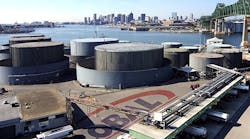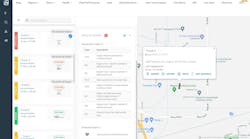Potential changes in climate over the next 50 to 100 years could disrupt transportation services in the Gulf Coast region, according to a study by the Department of Transportation (DOT).
The study examined the potential impacts of climate changes and land subsidence (the natural sinking of an area’s land mass) on transportation infrastructure in the region.
Twenty-seven percent of major roads, nine percent of rail lines, and 72 percent of area ports are at or below four feet in elevation, and could be vulnerable to flooding due to future sea level rise and natural sinking of the area’s land mass, according to the DOT information.
The area examined by the study includes 48 contiguous counties in four states from Galveston TX to Mobile AL. The study, Impacts of Climate Change and Variability on Transportation Systems and Infrastructure: Gulf Coast Study, Phase I, provides an assessment of the vulnerabilities of transportation systems in the region to potential changes in weather patterns and related impacts, as well as the effect of natural land subsidence and other environmental factors in the region.
Designed to help state and local officials as they develop their transportation plans and make investment decisions, the study is part of a program in which federal transportation officials will continue to work closely with state and local planners as they incorporate the study into their planning processes.
Subsequent phases of the three-part study will focus on risks and adaptation strategies involved in planning, investment, design, and operational decisions for infrastructure in the Gulf Coast region and nationwide. The study is available online at http://climate.dot.gov.








